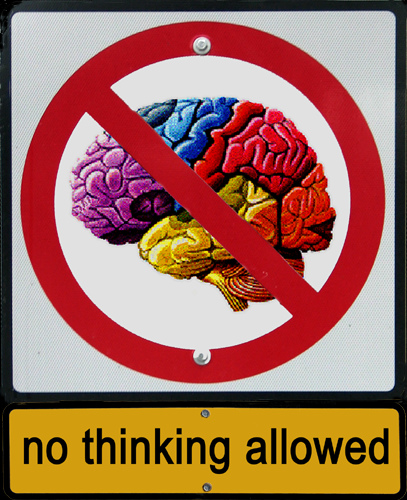Submitted by Anne Landman on
 A recent PRWatch story discussed how corporations are increasingly turning to cause marketing to get around people's ability to tune out their daily deluge of advertising. Cause marketing, or "affinity marketing," is a sophisticated public relations strategy in which a corporation allies itself with a cause that evokes strong emotions in targeted consumers, like curing cancer, alleviating poverty, feeding the hungry, helping the environment or saving helpless animals. The relationship avails the company of a more effective way to grab the attention of their audience, by telling them compelling stories linked to the cause, for example tales of survival, loss, strength, good works, etc. Once the company gets your attention, it links its name and brands to the positive emotions generates by the cause. The company then leverages that emotion to get you to buy the stuff they've linked to the cause -- and improve its corporate image.
A recent PRWatch story discussed how corporations are increasingly turning to cause marketing to get around people's ability to tune out their daily deluge of advertising. Cause marketing, or "affinity marketing," is a sophisticated public relations strategy in which a corporation allies itself with a cause that evokes strong emotions in targeted consumers, like curing cancer, alleviating poverty, feeding the hungry, helping the environment or saving helpless animals. The relationship avails the company of a more effective way to grab the attention of their audience, by telling them compelling stories linked to the cause, for example tales of survival, loss, strength, good works, etc. Once the company gets your attention, it links its name and brands to the positive emotions generates by the cause. The company then leverages that emotion to get you to buy the stuff they've linked to the cause -- and improve its corporate image.
Cause marketing works, which is why its use is spreading like wildfire. The operative word that the whole idea turns on is "emotion," because the ability to manipulate people depends completely on generating an emotional connection that the company can exploit.
Emotional Exploitation and Public Policy
Entire industries exploit emotions not just to sell goods, but also to influence public policy. Tobacco industry documents provide an excellent example:
In 1998, California's Proposition 10, a measure to raise cigarette taxes, made it onto the ballot was headed for a statewide vote. Naturally, the tobacco industry opposed it.
To influence the election, Tobacco Institute consultants did careful studies using focus groups to find specific themes that resonated with specific blocks of voters. In an internal strategy memo, an Institute consultant discusses how to influence gay and lesbian voters in California to oppose Proposition 10. The consultants knew this would be difficult because leaders of gay and lesbian groups often opposed the tobacco industry. Nevertheless the memo indicates strategists planned to do an "end-run" around the gay/lesbian leadership:
...Since it is apparent that we are not going to have the endorsement of most Gay and Lesbian leadership, it is important to use these campaign tools to bypass that and go directly to the Gay and Lesbian voter with a message that will resonate...
 "Messages that resonate" means finding themes that have strong emotional pull among the targeted groups, in this case gays and lesbians. Weaving anti-tax messages in with these themes would enable the tobacco industry to push people's emotional buttons and persuade them vote against the tax. The memo singled out several themes of importance to the gay and lesbian community that were ripe for exploitation:
"Messages that resonate" means finding themes that have strong emotional pull among the targeted groups, in this case gays and lesbians. Weaving anti-tax messages in with these themes would enable the tobacco industry to push people's emotional buttons and persuade them vote against the tax. The memo singled out several themes of importance to the gay and lesbian community that were ripe for exploitation:
"There are several areas that would have special interest to this community. That would include lifestyle regulation, government intrusion into private lives, and removing choice as an option for one's life decisions. These themes need to be developed carefully by focus groups and polling." [Italicized emphasis in original.]
Accordingly, industry consultants crafted messages designed to manipulate the emotions of gay and lesbian voters to convince them to oppose the cigarette tax. One of the themes they developed was the following:
"Wrapped in a cloak labeled 'health,' this initiative tries to legislate a change in behavior by encroaching on an individual's freedom of choice. This argument will appeal to ... gay/lesbian groups concerned about politicians trying to achieve 'social engineering' through a tax."
America's Epidemic of Wacky Public Discourse
 Corporations, PR people and political strategists have found that influencing emotions allows them to exert control over an audience. The stronger the emotions they can generate the bigger the clout they can wield.
Corporations, PR people and political strategists have found that influencing emotions allows them to exert control over an audience. The stronger the emotions they can generate the bigger the clout they can wield.
The technique, now in widespread use, explains a lot of the crazy public discourse of late:
The financial industry front group "Stop Too Big to Fail" (STBTF) assumed a name designed to tap into tremendous popular anger against big banks, while its real purpose is getting people to oppose measures that would rein in big banks. STBTF seeks to do the opposite of what its name indicates, but that doesn't matter. Whoever created the group is counting on people to react only to the name, and in turn trust its message, and look no further than that.
The wacky claims spread by Betsy McCaughey, Sarah Palin, Senator Chuck Grassley (R-Iowa) and others that health care reform legislation would lead to government "death panels" is a good example of a highly emotional message dominating over sane and logical discourse, no matter how bizarre the claim.
Recently, Senate Minority Leader Mitch McConnell (R-Kentucky) claimed that financial reform legislation would "institutionalize" taxpayer-funded bailouts for Wall Street banks -- exactly the opposite of what the bill would really do. But the strong emotions McConnell could generate by using phrases like "perpetual bailouts" gives him manipulative power. People respond to such words from their gut, not from their heads, and again, the ability to manipulate people depends on them not using their heads or checking facts.
Messages that President Obama is a "socialist" and a "Marxist" influence people to believe the President is inherently evil. It doesn't matter that card-carrying socialists have completely dismissed the proposal that Obama is a socialist. It doesn't matter whether he is or not. The mere words "Obama" and "socialist" together stimulate strong negative feelings, and thus generate strong general opposition to the President -- a goal of those spreading the message.
Industrial-Strength Emotional Exploitation Rules the Day, Unless You Think
Emotional manipulation works. That is why so many entities are using it against us at every turn. Pinkwashing, greenwashing, cause-related marketing, industry-funded front groups with deceptive names that spew extreme political claims, politicians making weird, baseless statements about proposed legislation -- they all get the desired results. Some legislators still try to use facts, reason and truth in public discourse, but there are now so many paid corporate and political messaging efforts going on that encourge people to react from their gut and not think, that reason, truth and facts are now weak public voices by comparison.
How to Defeat Manipulation
Emotional manipulation cannot exist in a culture where people ask questions and delve beyond the superficial. We at PRWatch urge you to be wary and observant of attempts to emotionally manipulate audiences. Be skeptical of messages and marketing techniques that try to get you to feel and not think. Insist on investigating any entity delivering an emotionally-loaded message before you buy into it. Ask questions about cause marketing campaigns, too, since they are designed to manipulate as well.
Democracy depends on an inquisitive and informed public that resists being hoodwinked.

Comments
Paul Jones replied on Permalink
Speaking of Fact Free...
Anne Landman replied on Permalink
My answer
DWIGHT BAKER replied on Permalink
Edge of the abyss,
Anonymous replied on Permalink
I just want to know when you
Robert Seviour replied on Permalink
Emotion as the basis for making decisions
Lesbian gal replied on Permalink
Why target gay and lesbians?
Anonymous replied on Permalink
Generalizaations and Stereotypes